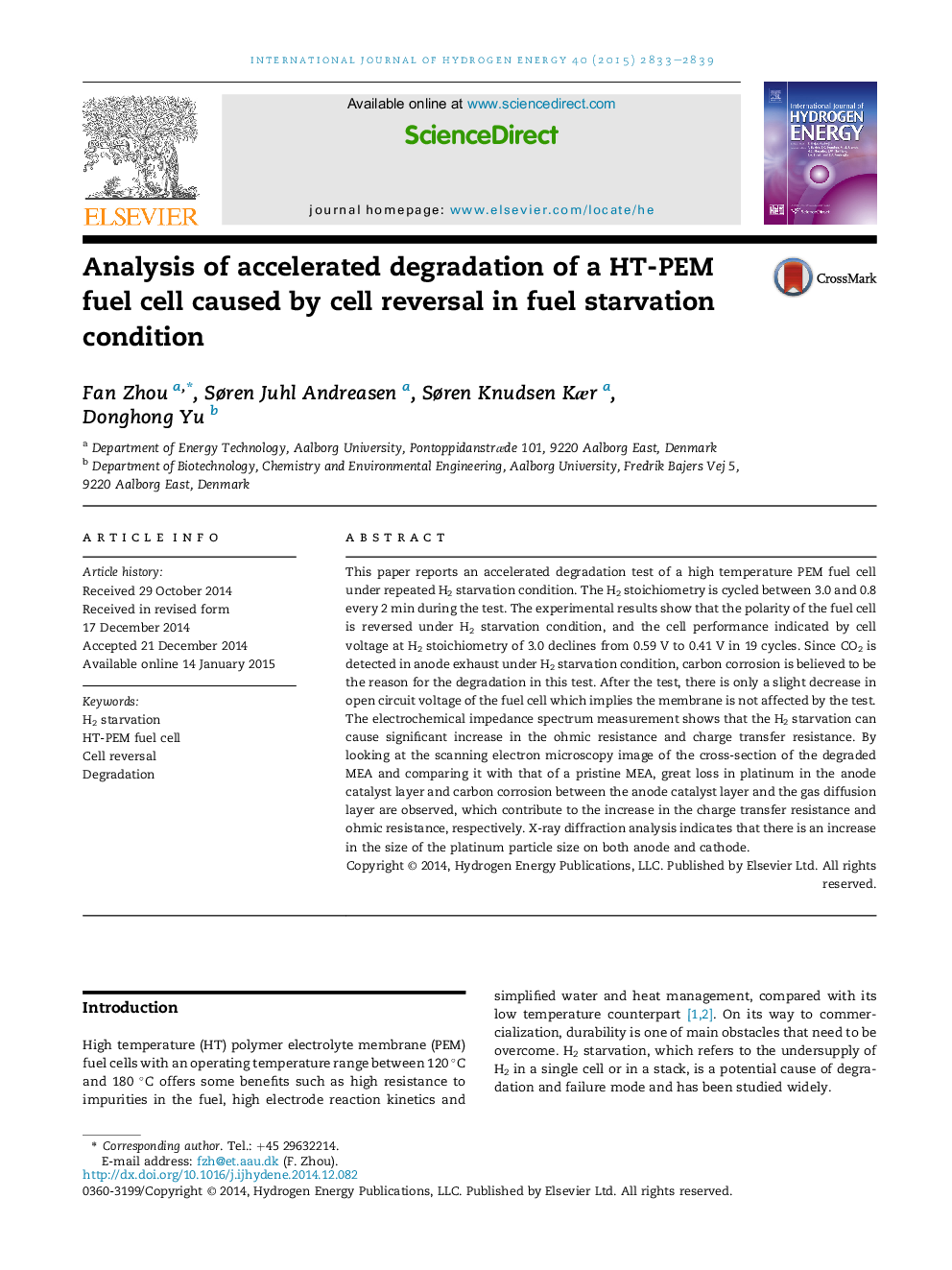| Article ID | Journal | Published Year | Pages | File Type |
|---|---|---|---|---|
| 1270047 | International Journal of Hydrogen Energy | 2015 | 7 Pages |
•Degradation test of HT-PEM fuel cell were conducted under H2 starvation condition.•Cell reversal and very high decay rate in the performance were observed in this test.•CO2 was detected in the anode exhaust under H2 starvation condition, confirming carbon corrosion.•The membrane was not affected by this test as the OCV remained unchanged before and after the test.•The main cause of the degradation in this test was the loss in platinum in the anode because of carbon corrosion.
This paper reports an accelerated degradation test of a high temperature PEM fuel cell under repeated H2 starvation condition. The H2 stoichiometry is cycled between 3.0 and 0.8 every 2 min during the test. The experimental results show that the polarity of the fuel cell is reversed under H2 starvation condition, and the cell performance indicated by cell voltage at H2 stoichiometry of 3.0 declines from 0.59 V to 0.41 V in 19 cycles. Since CO2 is detected in anode exhaust under H2 starvation condition, carbon corrosion is believed to be the reason for the degradation in this test. After the test, there is only a slight decrease in open circuit voltage of the fuel cell which implies the membrane is not affected by the test. The electrochemical impedance spectrum measurement shows that the H2 starvation can cause significant increase in the ohmic resistance and charge transfer resistance. By looking at the scanning electron microscopy image of the cross-section of the degraded MEA and comparing it with that of a pristine MEA, great loss in platinum in the anode catalyst layer and carbon corrosion between the anode catalyst layer and the gas diffusion layer are observed, which contribute to the increase in the charge transfer resistance and ohmic resistance, respectively. X-ray diffraction analysis indicates that there is an increase in the size of the platinum particle size on both anode and cathode.
